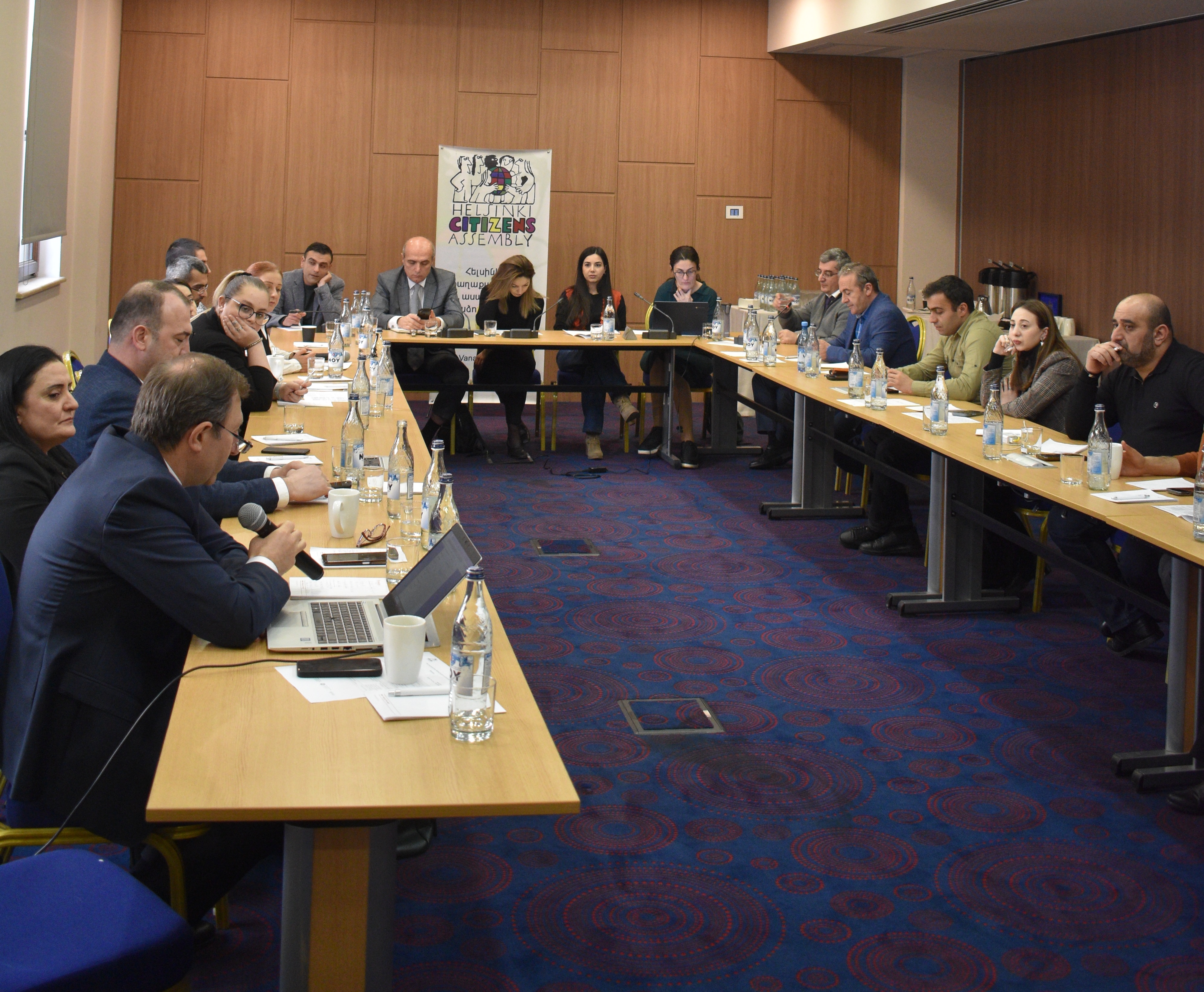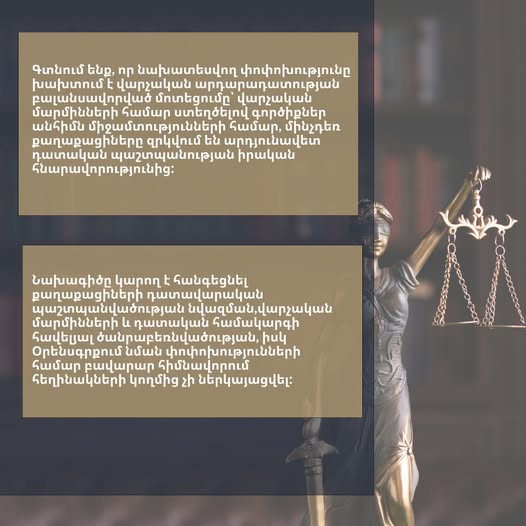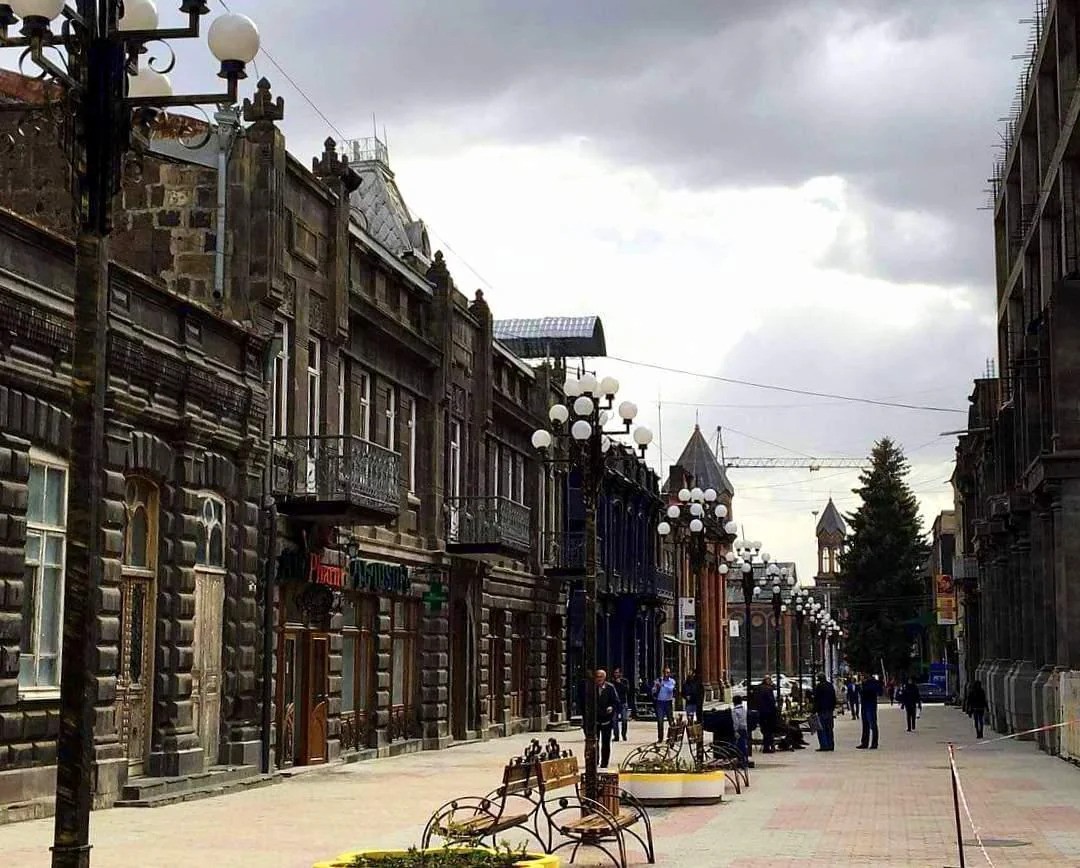




On February 22, HCA Vanadzor organized a public discussion on “Local elections: legislation and practice”

Activities | Electoral Process | Publications | News | State Institutions | Activities of Local Self-Government Bodies
The discussion speakers were:
- Artur Sakunts
- Vardine Grigoryan
- Sona Ayvazyan
- Armen Smbatyan
- Aghasi Yesayan
- Daniel Ioannisyan
- Gevorg Kotanjyan
- Levon Barseghyan
- Taguhi Ghazaryan
- Hayk Grigoryan
- Mariam Hoveyan
Below is the discussion summary:
Essential changes have taken place in the local governance sphere since 2021: the proportional electoral system applies to nearly all communities, and due to unification of communities, there are 71 communities remaining out of 915. The long-term impact of these changes can be assessed only in the context of decentralization of resources and functions. Before that, we can only assess electoral processes, effectiveness of changes, and gaps in the electoral legislation.
Compulsory and regular nature of elections is one of the main characteristic features of suffrage in a democratic state. This principle assumes foreseeability of election terms which would help competing forces and citizens to understand, assess and formulate mutual expectations. If unification of communities can be assessed as a positive development in the sense of its final goal, in the short term it vaguely reshaped not only communities but also the right to vote and political-civil participation opportunities of residents of these communities.
The new administrative-territorial division of communities became decisive in terms of dates of appointment of elections. Accompanied with introduction of the proportional representation, enlargement encountered resistance through low voter turnout and manifestations of rebellion by participating forces, when alliances and parties were formed around one person, stressing the preference of the majoritarian electoral system.
Application of the proportional electoral system is a complex multi-layer phenomenon whose pros and cons need a deep review.
|
pros |
cons |
|
|
|
|
|
|
|
|
|
|
States with well-established democracy take into account the inevitability of incumbency advantage and meanwhile strive to reduce undesirable manifestations of the advantage, i.e., abuse of administrative resources. During monitoring of the local government elections in Armenia, the Independent Observer Alliance has recorded, many times, that candidates (sometimes also nominated candidates) are appointed as temporary deputy head of the community. This means that incumbency advantage is artificially given to them. Implementation of their powers and public communication means serve as a campaign tool. In the case of the Council of Elders of Yerevan city, we witnessed another strange phenomenon when a person, who was not even an acting mayor, was provided with broad powers and coverage to ensure his initial advantage at the starting stage.
Undue interference of law enforcement and the judicial system is a more problematic and denounced way of using administrative resources in electoral processes. This was recorded in several communities, becoming a direct obstacle to citizens’ expression of will. These interferences contributed to not only factual paralyzation of the work of elective bodies in some communities, but also a general setback of trust in electoral processes. In particular, in the Vanadzor community this interference resulted in distortion of the activity of the elected Council of Elders and the impossibility of electing the head of the community. Moreover, in this case it becomes evident that citizens’ exclusive right to form a local government is subordinated to preferences of the ruling political force.
Priorities of further reforms
- Efforts aimed at oversight of political financing should be more harmonized to ensure full oversight of funding of the pre-election stage and the party’s ongoing activity;
- Exclude interference of law enforcement or security agencies in formation or legal activity of the local government;
- Ensure urgent solution to electoral disputes and judicial disputes related to elections and exclude restriction of elected bodies;
- Mechanisms for preventing abuse of administrative resources must further be strengthened through a) full vacation of the candidate holding a public office, b) ensuring balance and foreseeability of budget inputs and outputs during the pre-election stage as compared to other non-election periods;
- Prevent exclusion of women’s representation in the fraction by prohibiting transfer of the mandate to a candidate of a different sex in case of quota less than the established minimum
- In case the elected Council of Elders does not form a coalition and a political consensus is not achieved around a community head candidate, ensure election of the community head through direct voting of citizens by conducting a second stage within a short period of time and excluding undue interference in the activity of the Council of Elders and arbitrary appointment of new elections.














